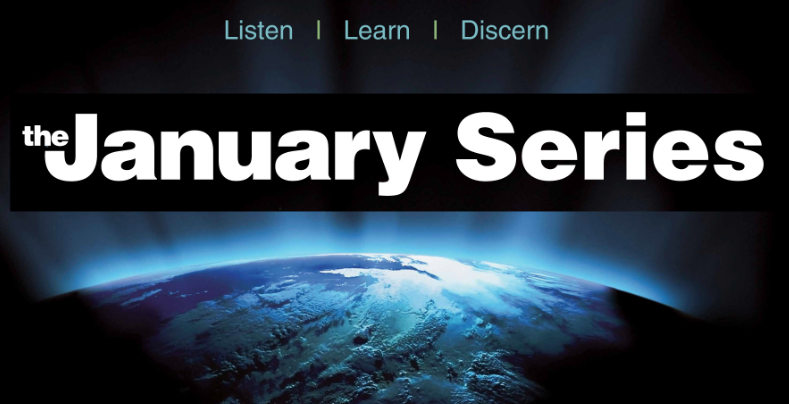If January Series talks are meant to spur discussion, then Dr. W. Dwight Armstrong’s presentation on “Feeding the World and the Future of Farming” was a smashing success. It certainly got people talking, at least in the circles I inhabit. Over the course of the day and the days following I engaged in several discussions with friends who had been angered or frustrated to some degree by his presentation.
This was largely because Dr. Armstrong’s perspective was one nearly opposite to many views I hear on agriculture. I tend to be partial to arguments which are critical of big agriculture due to focuses on environmental sustainability, ethical animal treatment and the treatment of farmers. Indeed, I’m quite interested in the arguments behind the “food morality movement” which Dr. Armstrong criticized so heavily. Though his position was more nuanced than I would have expected, he had rather different reasons for promoting movements toward local and organic food, urban farming and community supported agriculture than those for which I care about them.
But having had the chance to interview Dr. Armstrong prior to attending the talk, I couldn’t disengage the ideas from the person who held them. Face to face, we talked about his upbringing and the paths his career has taken. He’s been involved in agriculture his entire life as a farmer, an academic, a businessman, and now through the nonprofit sector with the National FFA Organization. He has a clear heart for students and obviously loves what he does at the FFA. I asked him what he finds most exciting and challenging about his work. (In answer, he enjoys watching young people grow, and non-profit fundraising is always difficult). He asked me about my studies at Calvin and what I hope to do after college. Engaging with him as a person first and sorting through his opinions secondarily profoundly shaped the way I heard his point of view.
He is driven to many of the ideas he holds in the interest of addressing the global problem of hunger. He tries to take into account what drives people to eat the food they do, and discusses feeding people on global and national levels. He tries to understand the challenges of future trends along with the mistakes of the past. He’s concerned about sustainability, but acknowledges that environmental sustainability is only one aspect of that term. He points out that large scale vs. small scale farming is not the only issue we are dealing with, and that there exist some spots in the current debates surrounding agriculture where people see only two sides to an issue which is in fact more nuanced and complex.
Though Dr. Armstrong and I would disagree on many points, I found it helpful to hear the arguments of a side I don’t hear as often. It was convicting too, precisely because I don’t listen those points of view as much. The values which Dr. Armstrong holds closely in shaping his opinions are good ones, even if I would hold others more highly or disagree on his ideas about how to meet those values. Often in these debates we seek out and latch on to information that supports the opinions we have already been forming. It’s easiest to listen to and talk with those who share our ideas, or at least understand our stance. But to dialog well with someone very much outside our own context is a skill which many of us need to sharpen, myself definitely included.
These are enormous issues to tackle, and they are numerous and interconnected. That’s exactly one feature which fascinates Dr. Armstrong about agriculture: it “touches every one of us.” Whether you come from the agricultural sector or not, food matters to all of us. And no one has this all figured out. We need see each other as people before we pick apart each other’s opinions. Varying perspectives will help shape these debates for the better if we learn to listen to each other well.




